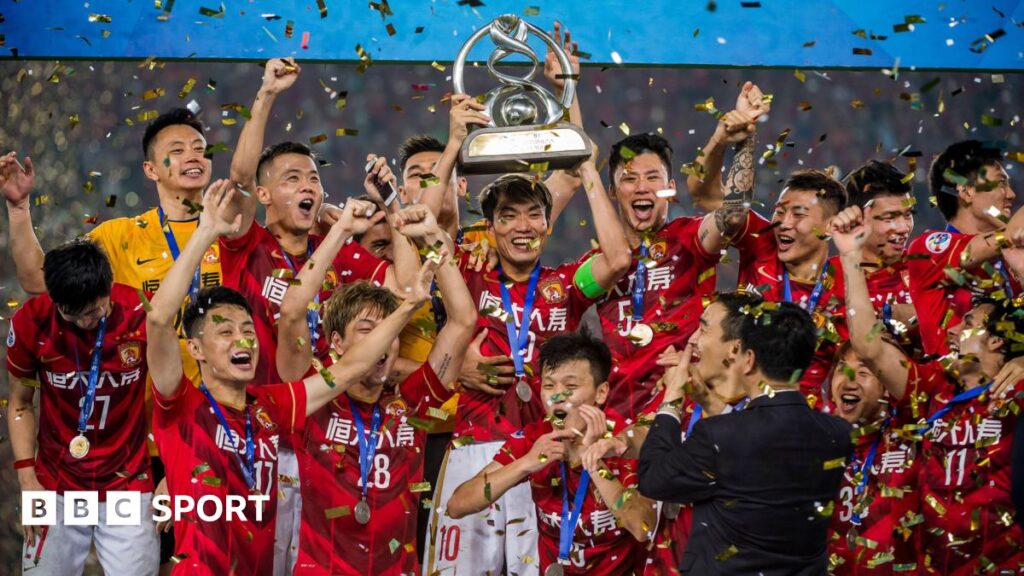Guangzhou’s rapid rise began in 2010, when real estate developer China Evergrande acquired the club, which was in China’s second division.
The new ownership group renamed the team Guangzhou Evergrande and invested heavily on and off the pitch, in line with Chinese President Xi Jinping’s ambitions to transform the country into a football powerhouse capable of hosting and winning the World Cup.
World Cup-winning Italian coach Marcello Lippi took over in 2012 and led the team to three CSL titles, the Chinese FA Cup and the AFC Champions League.
Luiz Felipe Scolari, who led Brazil to World Cup glory in 2002, was even more successful, winning seven trophies in two and a half years.
Former Tottenham and Barcelona midfielder Paulinho, former Italy striker Alberto Gilardino and former Colombia forward Jackson Martinez were among the foreign stars who arrived for big transfer fees and equally high salaries. .
But Guangzhou is not the only city spending big.
Many international players have moved to China as the CSL aims to compete with powerhouses such as the Premier League, La Liga, Serie A and Bundesliga.
Brazilian striker Hulk has joined former England manager Sven-Goran Eriksson’s Shanghai SIPG for £46m.
Chelsea midfielder Oscar soon followed for £60m, while former Manchester City and United striker Carlos Tevez also reportedly moved to Shanghai Shenhua for £40m.
All are highly paid, and in 2016 Chelsea manager Antonio Conte said the money Chinese clubs spent on players was “dangerous for all teams around the world”.
Arsenal manager Arsene Wenger added: “It looks like China has the financial power to move the entire European league to China.”
In 2019, Real Madrid’s Gareth Bale, at one point the world’s most expensive player, was linked with a move to Jiangsu Suning, where he would be worth £1 million a week.
However, things soon began to change. Alarmed by the sharp rise in spending, the Chinese Football Association introduced a “luxury tax” that would make big-money transfers prohibitively expensive.
A salary cap was also introduced and sponsors were also prohibited from naming their teams after themselves, so Guangzhou Evergrande was renamed Guangzhou FC.
Evergrande was already in financial trouble at that point and defaulted on debt payments in 2021 amid a widespread real estate crisis in China that was exacerbated by the coronavirus pandemic.
The company filed for bankruptcy in 2022, plunging Guangzhou into crisis. Their ambitious stadium plans were scrapped and players sold, culminating in relegation later that year.
Guangzhou, who narrowly missed out on promotion for the 2024 season, have been denied permission to play in the upcoming campaign citing ongoing financial issues.
However, the club hopes to continue in some form.
Guangzhou said in a statement: “We regret not being able to participate and sincerely apologize to the fans and those who support the club from all walks of life.”
“Without changing our original intentions, we will do our best to deal with the aftermath and support the development of Chinese football, Guangdong province and Guangzhou football.”


